10 Inclusive Strategies for Managing Holiday Crowds with Autistic Children
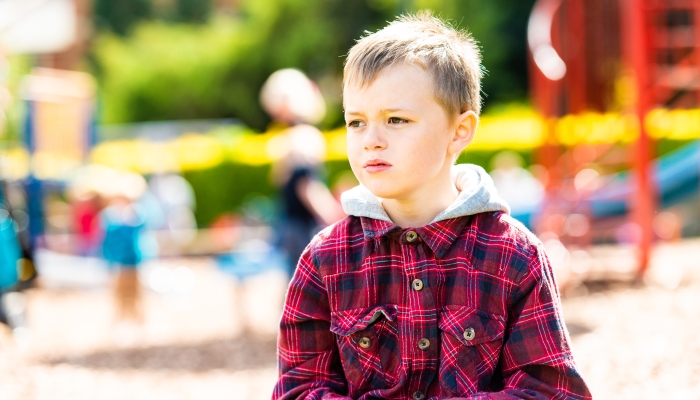
- Many children with autism have difficulty with crowded events due to overstimulation and loud noises, increasing the chances of a meltdown.
- Some children need more skills for social interaction and require direction and assistance when navigating crowds.
- Parents should consider their child’s comfort level when planning holiday outings, ensuring they feel comfortable and safe.
Holiday crowds are overwhelming for almost everyone; however, those with sensory issues are likely to have difficulty with loud noises and bright lights. If your child has autism spectrum disorder, they may feel overwhelmed when in a new or unfamiliar environment.
Overall, the goal should be to create a supportive and inclusive environment for communication, helping enhance their overall well-being and develop the skills necessary for uncomfortable situations.
Managing crowds for kids with autism seems daunting, but we have you covered with tips, strategies, and how to handle unexpected situations.
Preparing for Holiday Outings
One of the best things you can do as a parent of a child with autism is to prepare. Helping children understand the type of situation they will be in can have a significant impact. You don’t have to have a long take ahead of time; just communicate what they can expect so they aren’t surprised.
1. Discuss Plans Ahead of Time
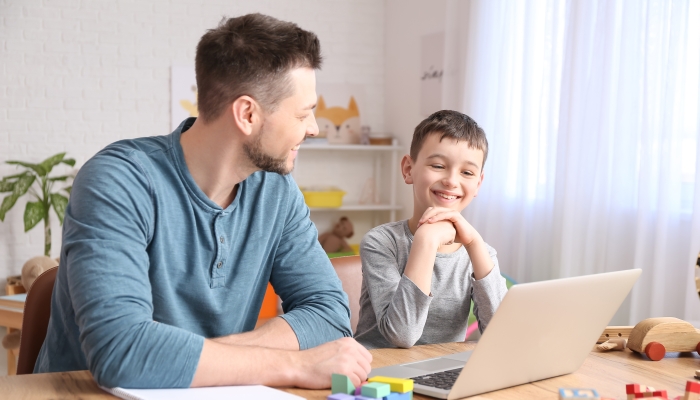
A great idea to plan ahead is to create a visual schedule or social story to help your child prepare for the holiday. For example, you can tell them what to expect, how long you’ll be there, and any foreseeable changes to your routine.
It’s also good to remind other family members that your child is sensitive to specific atmospheres so they don’t think your child is rude or inconsiderate.
2. Choose the Right Environment
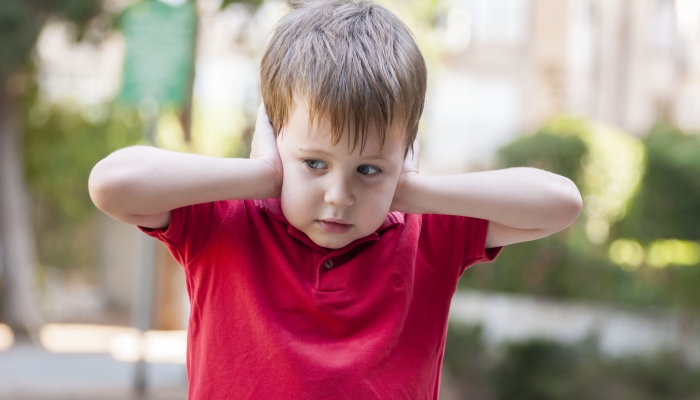
Before heading anywhere, research the event or venue to understand better the potential crowd size, sensory stimuli, and layout. In addition, many places offer sensory-friendly accommodations or events during the holidays, so don’t be afraid to call ahead and ask.
For example, Chuck E. Cheese has Sensory Sensitive Sundays with reduced noise, dim lighting, and a sensory-friendly arcade experience for children with autism and other developmental disorders.
Finally, consider the time you visit venues or attractions. It’s always best to get there at the opening instead of the middle of the day or early afternoon. You can introduce your child to new places at quiet times11. Sensory sensitivities: Autistic children and teenagers. Raising Children Network. 2024. https://raisingchildren.net.au/autism/behaviour/understanding-behaviour/sensory-sensitivities-asd and gradually increase the time you spend there in subsequent visits.
Strategies During the Outing
I like to have a plan of action while I’m out with my children. At the very least, I want to know what to expect to prepare for events. For example, I’ll bring a bag if I know I’m taking my kids to a relative’s house with no age-appropriate toys or activities.
You know your child best, so it’s helpful to consider strategies during your outing.
3. Utilize Sensory Tools and Comfort Items
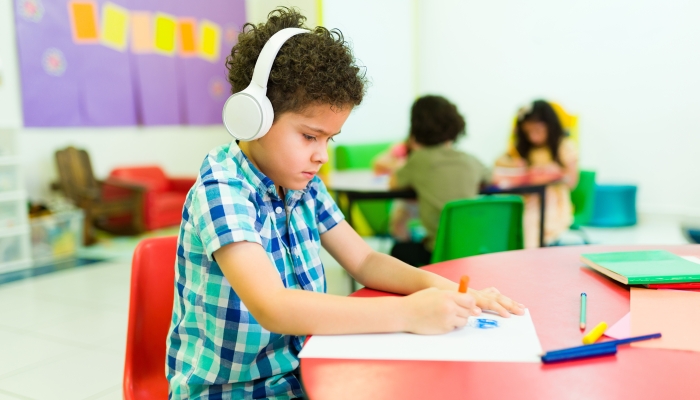
If your child gets overwhelmed or anxious in social situations, you’ll want to bring items to help them calm with any unpleasant feelings. You can also talk to your kids beforehand to ensure you don’t miss anything.
Examples of comfort items and sensory tools include:
- Noise-canceling headphones
- Fidget toys
- Weighted blanket
- A favorite toy
- Comfortable clothes
Learning how to deal with sensory overload can significantly impact your family and your ability to develop the skills to go out together. In addition, if your child is in school, you’ll see an impact there, too.
4. Create a Safe Space
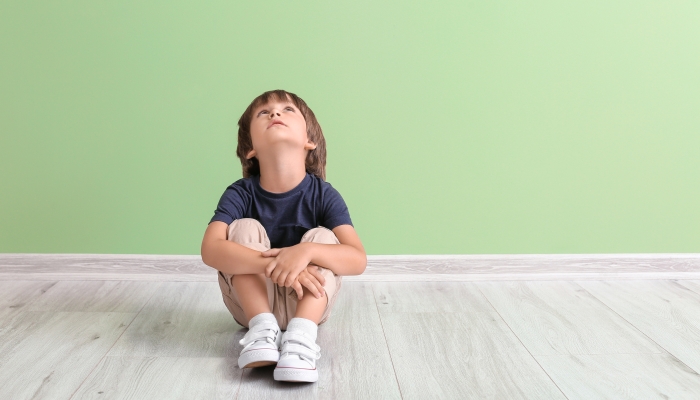
Identify quiet areas and escape routes if your child feels overwhelmed. While you don’t want them leaving at the drop of a hat, knowing they have a safe place can make a big difference, and it may make them feel more comfortable.
It can be scary not to know where your child is in a public setting, so having a set location where to meet can help avoid unnecessary stress.
5. Use Positive Reinforcement
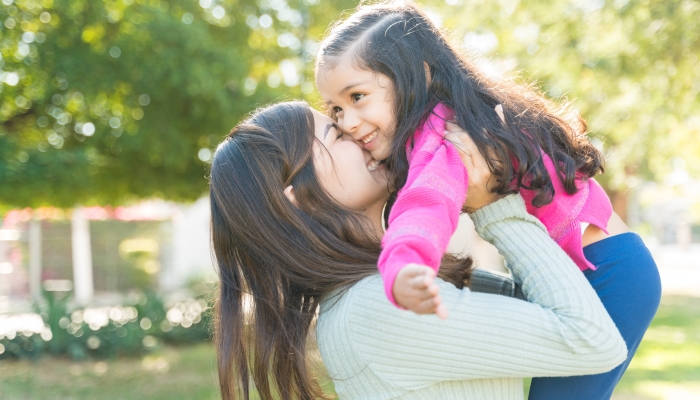
Remember to praise your child for their efforts and positive behavior during your outing. Consider offering rewards or incentives to help motivate and reinforce desired behaviors.
In addition, try to involve your child in the planning process to help foster independence and self-confidence. It’s great to communicate with your kids about their interests and help them feel in control of the situation or event.
Managing Unexpected Situations
Unexpected situations have an unusual way of appearing when we’d rather they’d stay away. However, since things out of control can happen (and always do at the worst time), it’s best to be prepared to help your child if and when they become uncomfortable.
Special needs emergency planning is vital when dealing with unfamiliar or uncomfortable settings.
6. Recognize Signs of Distress

You frequently can tell by your child’s facial expressions whether they are stressed or anxious. If your child is having difficulty at an event, gently take them by the hand and walk them to a different room.
Children with autism may show signs of aggression when overstimulated, in addition to the following symptoms:
- Difficulty following directions
- Social withdrawal
- Heightened sensory sensitivity
- Increased anxiety or agitation
- Attempts to escape
- Self-stimulatory behavior
- Self-injurious behaviors like hitting or biting themselves
- Hypersensitivity to touch or physical contact
Remember to encourage them and remind them of the great job they are doing despite signs of distress or sensory meltdown. Encouragement can go a long way for autistic children, especially during social interaction.
7. Develop a Quick Response Plan
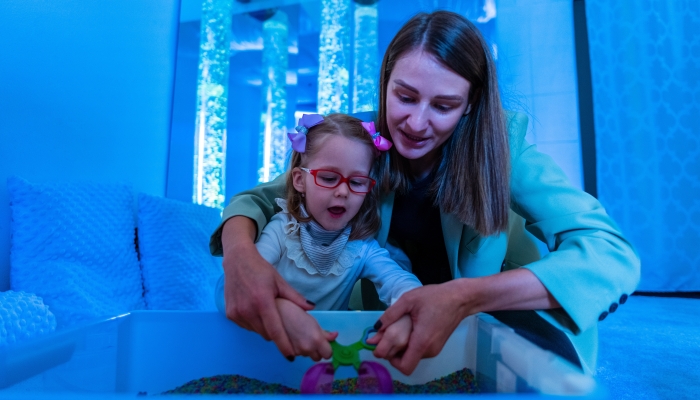
Creating quick response plans is a great way to prepare in case of a meltdown or wandering. While creating coping techniques like deep breathing or mindfulness exercises is a good idea, time isn’t always on your side.
If your child is having a meltdown or feels overwhelmed, the best thing you can do is remove them from the environment. Sometimes, you only need to take your child outside or go to the car. If your child has a favorite song, you can play it to help them relax.
Removing yourself from a crowd may be difficult if you have other children, so you might engage in a calming activity to help soothe your child.
After the Outing
Hindsight is always 20/20; you’ll likely learn something from every outing you take with your children. However, it’s a good idea to write down your thoughts, particularly after a challenging outing. Don’t hesitate to talk to your child about what they liked and didn’t like.
8. Reflect and Learn
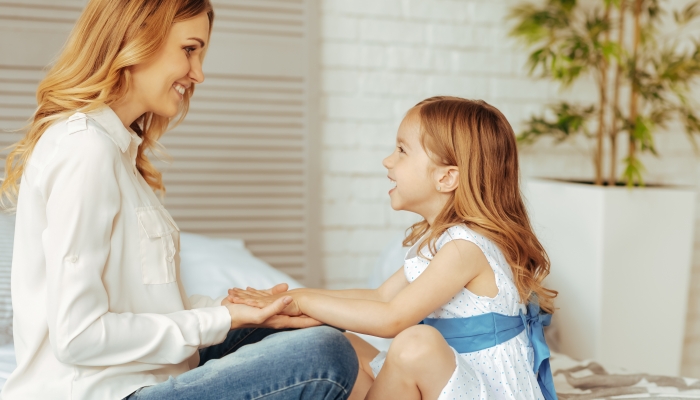
Once the outing is finished, you can reflect with your child to better understand what worked and what didn’t. Understanding what made your child calm and what was stressful is helpful.
In addition, remember to practice self-care and prioritize your own well-being during the holidays. If needed, seek support from family, friends, or support groups to learn coping strategies and share experiences.
Children with autism frequently have difficulty filtering out sensory information, so it’s important to surround them with people who understand their unique needs.
9. Build Resilience and Confidence
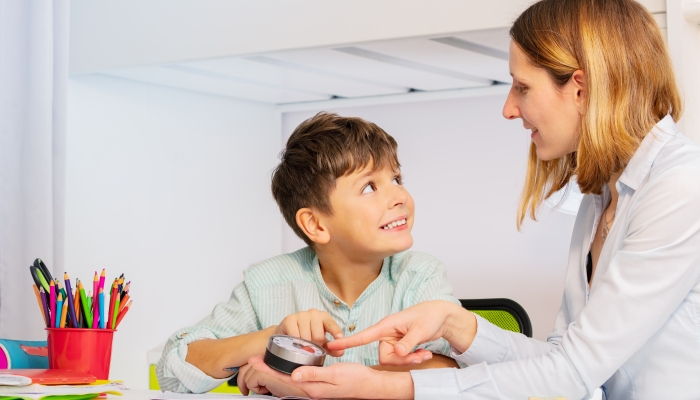
As always, you should celebrate successes and achievements, whether small or big. In addition, it’s a great idea to gradually increase your child’s exposure to similar environments. Remember, baby steps are still progress!
If your child has autism, it may take them longer to be comfortable with anyone other than their family. However, every time you get them out of the house, it is a stepping stone to learning new skills and adapting to their environment.
10. Encourage Self-Expression

After your outing, create a supportive environment for your child to express how it made them feel. For example, you can encourage them to write, draw, or use other forms of expression to share their thoughts.
You can also talk to your child about the next outing based on their interests and preferences. Your latest outing may have sparked an interest in your child, and they may be more eager to go again. Talking to your child and communicating can help you learn a lot about your child’s comfort zone.
FAQs
How can parents choose autism-friendly holiday destinations or events?
Many parents opt out of large holiday gatherings if their children are sensitive to overstimulation. However, that doesn’t mean you have to stay home. Keeping expectations low and planning new activities with smaller crowds is a great idea. Parents also have a great sense of what works well and what doesn’t.
How can families prepare for unexpected changes in holiday plans with an autistic child?
No one likes an unexpected change in their schedule, but it’s tougher on some children. Communication is always important when making changes so everyone understands what is happening. Allowing extra time to process unexpected changes can help a child cope with potential anxiety or stress and accept the environment around them.
What safety measures should you consider during holiday outings with autistic children?
You know your child best, so you will likely know what safety measures are appropriate. For example, if your child runs to escape, you’ll want to ensure doors are locked or monitored for escape.
In a 2020 study by Wiggins et al., among children with confirmed autism spectrum disorder, about 60% were reported to wander22. Wiggins, L. D., DiGuiseppi, C., Schieve, L., Moody, E., Soke, G., Giarelli, E., & Levy, S.. Wandering Among Preschool Children with and Without Autism Spectrum Disorder. Journal of Developmental & Behavioral Pediatrics. 2020;41(4), 251–257. https://doi.org/10.1097/dbp.0000000000000780. The findings can be used to increase the awareness of wandering among children with developmental disorders.
How can parents balance holiday traditions with the needs of a child with autism spectrum disorder?
If your child has autism, that shouldn’t stop you from participating in holiday traditions. Instead, take time to notice where they thrive and are uncomfortable. Staying in communication with your child can help you determine how to balance the holidays best!
References
- Sensory sensitivities: Autistic children and teenagers. Raising Children Network. (2024, January 24). https://raisingchildren.net.au/autism/behaviour/understanding-behaviour/sensory-sensitivities-asd
- Wiggins, L. D., DiGuiseppi, C., Schieve, L., Moody, E., Soke, G., Giarelli, E., & Levy, S. (2020). Wandering Among Preschool Children with and Without Autism Spectrum Disorder. Journal of Developmental & Behavioral Pediatrics, 41(4), 251–257. https://doi.org/10.1097/dbp.0000000000000780
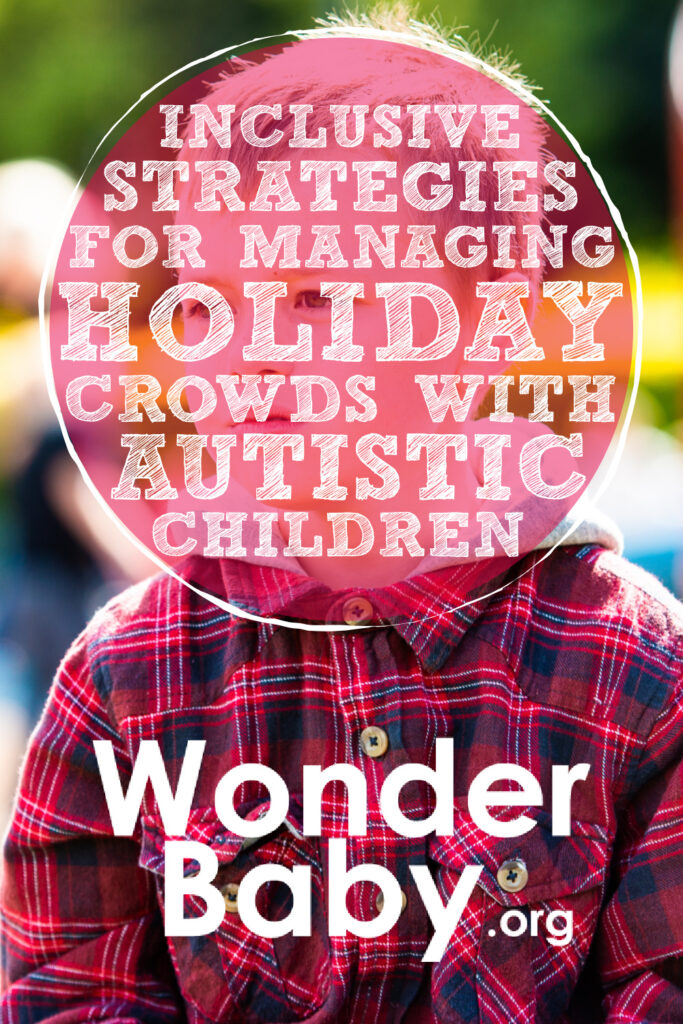
Related Posts

Eye Conditions and Syndromes, Visual Impairment
Neuralink Announces Plans to Restore Sight to the Blind with Brain Chip
Elon Musk’s company Neuralink has announced plans to begin human trials of its new “Blindsight” brain chip by the end of 2025.

Special Needs
5 Spring Cleaning Tips for Families of Children with Disabilities
Spring cleaning is an opportunity to create a more accessible, organized, and supportive space for your child with disabilities. Declutter, deep clean, and refresh!

Visual Impairment
The Gift of Understanding: How a Young Child Helps His Blind Father Navigate Life
When a parent is blind, it’s natural for people to wonder how their sighted child will adapt. Will they struggle to understand their parent’s needs? Will they feel burdened by...